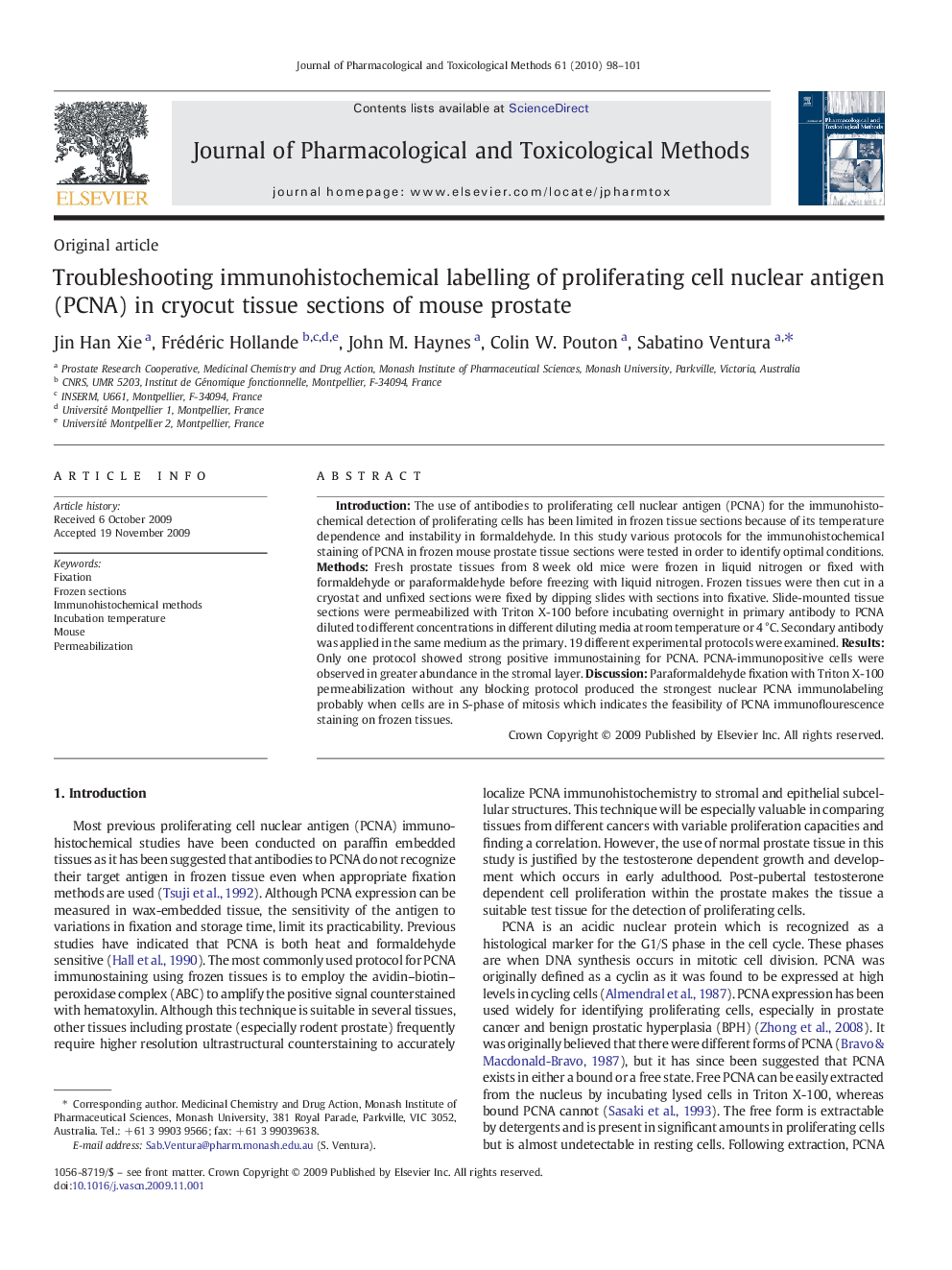| Article ID | Journal | Published Year | Pages | File Type |
|---|---|---|---|---|
| 2549335 | Journal of Pharmacological and Toxicological Methods | 2010 | 4 Pages |
IntroductionThe use of antibodies to proliferating cell nuclear antigen (PCNA) for the immunohistochemical detection of proliferating cells has been limited in frozen tissue sections because of its temperature dependence and instability in formaldehyde. In this study various protocols for the immunohistochemical staining of PCNA in frozen mouse prostate tissue sections were tested in order to identify optimal conditions.MethodsFresh prostate tissues from 8 week old mice were frozen in liquid nitrogen or fixed with formaldehyde or paraformaldehyde before freezing with liquid nitrogen. Frozen tissues were then cut in a cryostat and unfixed sections were fixed by dipping slides with sections into fixative. Slide-mounted tissue sections were permeabilized with Triton X-100 before incubating overnight in primary antibody to PCNA diluted to different concentrations in different diluting media at room temperature or 4 °C. Secondary antibody was applied in the same medium as the primary. 19 different experimental protocols were examined.ResultsOnly one protocol showed strong positive immunostaining for PCNA. PCNA-immunopositive cells were observed in greater abundance in the stromal layer.DiscussionParaformaldehyde fixation with Triton X-100 permeabilization without any blocking protocol produced the strongest nuclear PCNA immunolabeling probably when cells are in S-phase of mitosis which indicates the feasibility of PCNA immunoflourescence staining on frozen tissues.
